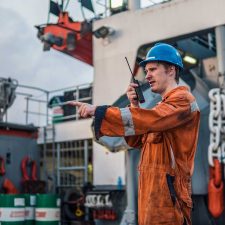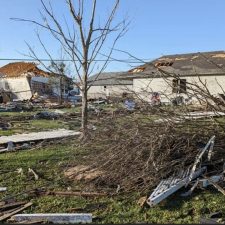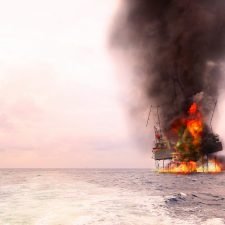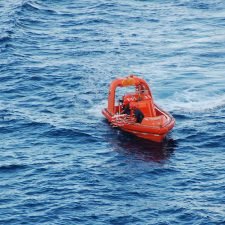You’ve probably heard the term collision, frequently used in discussions of vehicle accidents. But you may not be familiar with the term “allision.”
Despite advancements in navigation, ships still have accidents while traveling the waterways. These accidents may happen due to bad judgment or other human errors. The rules of maritime law, also known as admiralty law, apply to maritime legal issues and questions, such as maritime injuries, shipping, cargo, transportation of goods and passengers, and accidents.
Maritime law varies among countries, but in the United States, federal courts have jurisdiction over all maritime laws, lawsuits, and claim matters.
Accidents happen in all kinds of ways. However, in maritime law, a collision and an allision are different. When two moving vessels crash, that is a collision. But when a moving vessel crashes into a stationary object, that is an allision.
- Collision. This term refers to an accident involving two vessels. Two ships passing one another must adhere to the Rules of Navigation. They need to communicate to decide which vessel will “stand on” and which will “give way.” If the vessel that is supposed to give way does not act to avoid a collision, the other vessel must do anything possible to prevent the accident.
- Allision. This term refers to an accident between a vessel and a stationary object. A stationary object is any object that isn’t in motion, for example, a bridge, pier, dock, or bridge. Sometimes ships crash into oil platforms or drilling rigs, causing fires or disastrous oil spills.
Who Is Responsible for a Maritime Crash?
Collisions and allusions typically involve many complex laws. However, if the vessel was in navigable waters when the accident occurred, U.S. maritime laws typically govern liability.
For example, the Jones Act is a federal law that regulates United States maritime commerce. It requires goods shipped between U.S. ports to be transported on ships built, owned, and operated by United States citizens or permanent residents.
Fault is the basis for liability for collision under the admiralty law. Every officer and vessel operator must adhere to the applicable Rules of Navigation, which include the following:
- The International Rules, for vessels on the high seas.
- The Great Lakes Rules.,
- The Western Rivers Rules, primarily for vessels operating on the Mississippi and its tributaries
- For all other navigable waters in the U.S., the Inland Rules, such as rivers, harbors, bays, channels, etc.
Injuries resulting from allisions can fall within several federal laws.
For example, under the Louisiana Rule and the Oregon Rule, the law holds a moving vessel liable when it strikes a stationary object. Therefore, injuries and property damage resulting from the allision should be the vessel operator’s responsibility.
The Oregon Rule, which dates from an 1895 United States Supreme Court case, states that a person or entity that owns the stationary object can demonstrate the moving vessel’s breach of duty, thereby shifting the burden to the moving vessel to prove that it acted with reasonable care, or that the stationary object was at fault, or that the allision was unavoidable.
The Pennsylvania Rule states that if the plaintiff committed an infraction that may have resulted in the allision, the owner of the stationary object must prove that their infraction could not have been at fault for the injuries and damage from the crash. The Pennsylvania Rule has three elements:
- Proof of the violation of a law or regulation that imposes a mandatory duty
- The law or regulation must involve marine navigation or safety
- The injury must be of the nature that the law or regulation was intended to prevent.
Have You Been Injured in an Offshore Accident?
Accidents involving marine vessels can result in injuries and losses that affect many people. If you have been involved in a collision or allision, you may be entitled to recover compensation for your injuries.
For more information, please contact the offshore injury law firm, The Mahone Firm today for a free no-obligation consultation.






